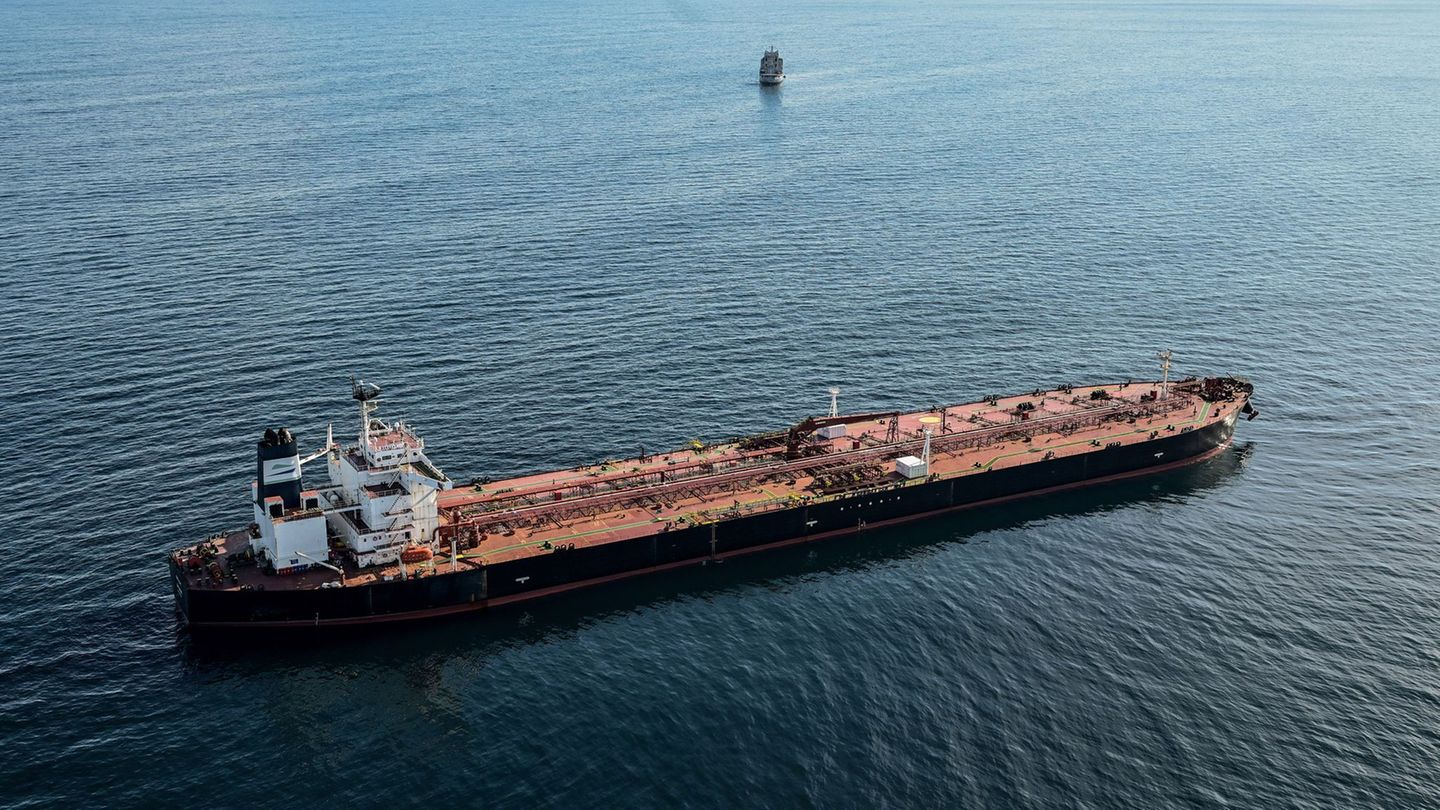Evading oil sanctions
EU wants to take stronger action against Russia’s shadow fleet
Copy the current link
Add to wishlist
Despite ever new EU sanctions, Russia is exporting oil worth billions with the help of its shadow fleet. Are other methods needed? The foreign ministers are discussing this.
The EU is increasingly concerned about the so-called Russian shadow fleet designed to circumvent international oil sanctions as a result of the Ukraine war. As can be seen from a working paper for a meeting of foreign ministers this Monday in Luxembourg, the size of this fleet is now estimated at 600 to 1,400 tankers. “These ships not only contribute to the Russian war economy, but also pose a significant threat to the environment and shipping safety,” warn experts from the EU foreign policy chief Kaja Kallas in the document that is available to the German Press Agency.
Accidents could therefore cause oil spills and other marine pollution – with devastating consequences for coastal areas, ecosystems and fisheries. Since many of the ships have unclear ownership and, according to experts, are not or only inadequately insured, in the event of an accident, the taxpayers of the coastal states would probably have to pay for the repair of the damage.
Moscow has been trying for years to circumvent a price cap for Russian oil introduced by Western supporters of Ukraine through the so-called shadow fleet. For this purpose, outdated ships with difficult to trace ownership are chartered and various methods are used to conceal the origin of oil cargoes. Sometimes the transponder of the satellite-based automatic ship identification system (AIS) is switched off or manipulated, and sometimes oil is transferred between tankers on the high seas.
There is also a warning that Shadow Fleet ships can be used as a platform for launching drones for jamming or espionage attacks. This suspicion also arose after the mysterious drone sightings in Denmark, which led to significant restrictions on air traffic, especially in the capital Copenhagen.
EU wants to control shadow fleet more closely
In order to get the problem under control, EU foreign policy chief Kallas is now proposing not only to take tougher action against the ships and shipping companies involved, but also to cooperate more intensively with coastal countries and those states under whose flag the ships are registered. Ideally, these states should give their consent to ships being controlled by naval forces from EU countries.
According to the text, three EU naval missions have been tasked with monitoring and gathering information about the shadow fleet since June 2025. This includes, among other things, Operation “Aspides”, which is primarily intended to help protect merchant ships in the Red Sea from attacks by the Yemeni Houthi militia. The German Bundeswehr is also involved in the mission.
In the future, more than 560 ships will be on the sanctions list
In order for the EU foreign policy chief to implement her plans, she needs the consent of the EU member states. The same applies to further sanctions. According to the document, it is planned that the number of ships affected by port bans and punitive measures will be increased from the current 444 to 562 as part of the 19th package of EU-Russia sanctions.
DPA
Source: Stern
I have been working in the news industry for over 6 years, first as a reporter and now as an editor. I have covered politics extensively, and my work has appeared in major newspapers and online news outlets around the world. In addition to my writing, I also contribute regularly to 24 Hours World.




